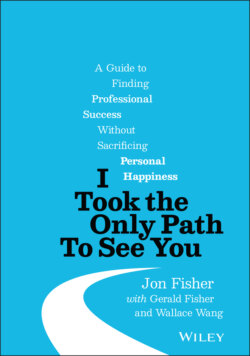Читать книгу I Took the Only Path To See You - Jon Fisher - Страница 20
THE LASER
ОглавлениеBy Gerald Fisher
Professor Arthur Schalow was the co-inventor of the laser, which would be something special to put on any resume. The question of legacy has always been very interesting to me. If somebody asked you, “What do you think you will be remembered for?” what would you say? That's a pretty tough question which is why people get very discouraged thinking about that.
Just thinking about this question forces you to think about your life. What have you done that will be memorable? Why will it be memorable? Think of your friends and ask how they may have made their mark in the world that will live on long after they're gone.
Ask Arthur Schalow what he thinks would live on after he's gone and he might say, “Charlie and I invented the laser.”
One experience that stands out in my mind was when Art and I were both on the Admissions Committee and somebody made a wisecrack, saying that it looks like everybody we're admitting was born between November and February. Of course I replied in my characteristic manner, “That's because people born between November and February are smarter and more gifted.” Everybody laughed, that relieved some of the tension, and we went back to work.
At the very next meeting, Art came in with a graph. He had looked up all the Nobel Prize winners since the first Nobel Prize winner in physics, Roentgen, who discovered X-rays in 1901. His graph covered over 100 years of Nobel Prizes with an average of 2.5 per year, so there were in excess of 250 Nobel Prize winners. He had looked up every birthday and plotted the number of Nobel Prize winner birthdays versus month, and found there was no correlation whatsoever. The graph was a horizontal line at best, but the fact that he had even created the graph and researched the facts tells you something about how he thought.
Although Art could certainly have rested on his laurels as the co-inventor of the laser, there was much more to him than that. My daughter attended a school that sent over a young kid to see me who was very smart and needed help building a project. When I asked him what he wanted to do, he told me, “I want to build a laser.”
I thought that was a great project so I decided to sign on. However, since lasers weren't my field of specialty, we eventually got bogged down a bit. It wasn't a matter of pride for me whether I helped this student build a successful working laser or not. I just wanted to help get this laser working correctly, so I went to see Art.
I explained to Art that I had a high school student who was very smart and wanted my help in building a laser. I asked Art if maybe he had a graduate student or post-doc with some extra time who could help us out a little.
To my surprise, Art said, “I'll do it.”
The idea that the inventor of the laser would volunteer his time to work with a high school student was very generous, very kind, and very special. However, I said, “I don't think it's something we should do. I know you're extremely busy, and I really don't think that would be appropriate.”
Art insisted, “I'd be happy to do it. Unless, of course, you prefer someone else?”
I had to tell Art, “I don't prefer someone else. I just think it would be more appropriate to ask someone else.”
Art eventually recommended one of his post-docs, who was very much willing to help this high school student, and I was happy to be part of this interaction. Together, they built the laser and the project was a success. Ironically, 20 years later, this post-doc is now a major scientist and head of his lab in laser physics.
Now there's the question of, why did this post-doc volunteer? Even more intriguing is, why did Art volunteer? Both men apparently agreed to help this high school student because that's just the kind of people they were. They were both warm, sweet, and kind. Not only were they generous with their time, but their actions demonstrated without hesitation that they were truly concerned about other people, and that kind of behavior was contagious with everyone they met.
Art could have been a typical sort by hiding behind his co-invention of the laser and winning a Nobel Prize, but his willingness to help others did not make it more difficult for him to be a success. In fact, his kindness enhanced the productivity and morale of everyone who worked with him so Art's kindness actually helped make him more successful.
